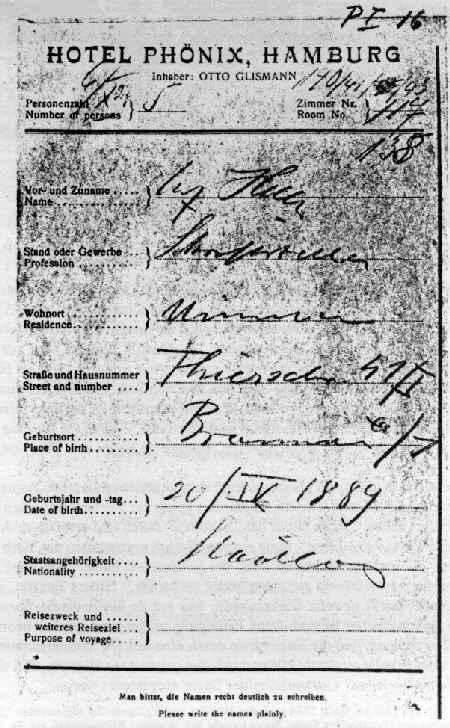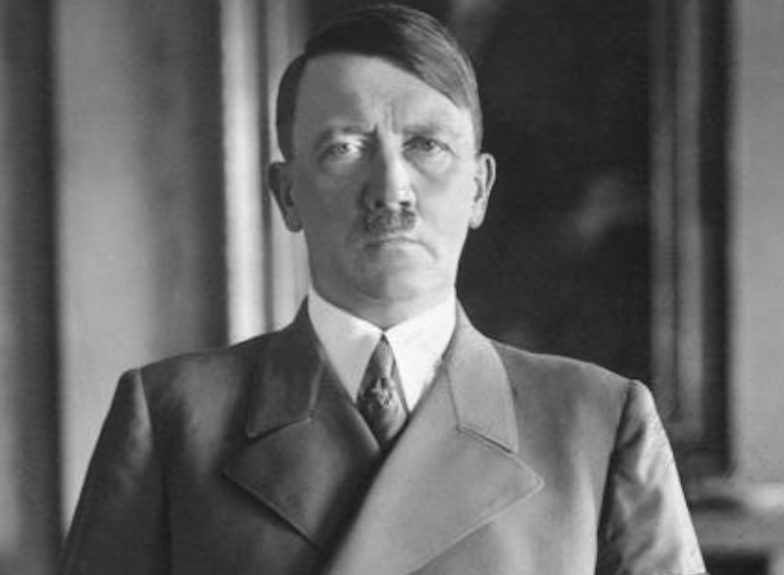by World Passport Museum
Today we will delve deep into history archives exploring how a naturalised citizenship given to one man, changed the course of history. Had this citizenship not been given, the course of world would be entirely different.
Many underestimate, the formidable power of citizenship and its remarkable potential to change the world. History tells us citizenship is both valuable and powerful.
Adolf Hitler was born in Brunau am Inn on 20 April 1989, then part of Austria-Hungary—and was raised near Linz. He moved to Germany in 1913 and was decorated during his service in the German Army in World War I. In 1909 after his mothers death Hitler ran out of money and was forced to live a bohemian life in homeless shelters and a men’s dormitory.He earned money as a casual labourer and by painting and selling watercolours of Vienna’s sights
Hitler remained Stateless for 7 years
Hitler had terminated his Austrian citizenship in 1925, he did not acquire German citizenship and remained stateless for almost seven years. As stateless, legally unable to run for public office, and still faced the risk of deportation. The Bavarian government attempted to have him deported back to Austria. The Austrian federal chancellor rejected the request on the specious grounds that his service in the German Army made his Austrian citizenship void. In response, Hitler formally renounced his Austrian citizenship on 7 April 1925.
In order to prevent any future impending expulsion, Hitler wrote this on 7 April 1925 to the High Magistrate of the City of Linz for his dismissal from Austrian citizenship on the following grounds:
“I ask for my release from Austrian citizenship. Reasons: I have been in Germany since 1912, have served for almost six years in the German army , including 4½ years at the front and now intend to acquire German citizenship . ”
“Since I currently do not know whether my Austrian citizenship is not already extinct anyway, but an entry of the Austrian soil was rejected by an order of the Federal Government, I ask for a favorable decision of my request.”
On April 30, 1925 Hitler’s request was granted for a fee of 7.50 shillings. As a result, he lived from that date as a stateless person on German soil.
Though Hitler had left Austria in 1913, he still had not acquired German citizenship and hence could not run for public office or participate in politics.
As many as 7 attempts made by Hitler to receive citizenship in Germany since 1925.
After years of being stateless, a fellow member of the Nazi Party appointed Hitler to a low-level government job that came with automatic citizenship. On February 25, 1932, Adolf Hitler became a naturalized citizen of Germany in time for the presidential election.
Hitler wrote himself as stateless in registration card of Hotel Phönix in Hamburg.

Naturalised as New German Citizen
In February, the state government of Brunswick, in which the Nazi Party participated, appointed Hitler to a minor administrative post and also made him a citizen of Brunswick on 25 February 1932. In those days, the states conferred citizenship, so this automatically made Hitler a citizen of Germany and thus eligible to run for president.
Hitler’s new citizenship status allowed him to achieve his political goals, with making him the most powerful and notorious dictators of the 20th century.
In 1932, New york times published this story.

THE NEW YORK TIMES, February 26, 1932 Source: http://www.rarenewspapers.com/view/557209
As a citizen, he could run for office, and by the middle of 1934, power in Germany was entirely his as leader and chancellor.
Hitler turned the tables, used citizenship as a weapon which redefined citizenship to serve his beliefs. He used race and pan-German heritage to give citizenship to, and take it from, large groups of people.
Hitler without his citizenship, would have never have achieved his political goals of becoming a leader and chancellor and history would be have been rewritten differently.
Citizenship in Modern era
In the modern era, the concept of full citizenship encompasses not only active political rights, but full civil rights and social rights. A person who is denied full citizenship or nationality is commonly called a stateless person.
Although citizenship comes in several forms jus soli, jus sanguinis, martimony, investment, naturalization etc, Citizenship offers a bundle of rights such as political participation in the life of the community, the right to vote, and the right to receive certain protection from the community, as well as obligations.
Citizenship extends beyond basic kinship ties to unite people of different genetic backgrounds. It usually signifies membership in a political body. It is often based on, or was a result of, some form of military service or expectation of future service. It usually involves some form of political participation, but this can vary from token acts to active service in government. Multiple or dual citizenships widely accepted in societies and states.
The Maastricht Treaty introduced the concept of citizenship of the European Union. Article 17 of the Treaty on European Union which stated that: Citizenship of the Union is hereby established. Every person holding the nationality of a Member State shall be a citizen of the Union. Citizenship of the Union shall be additional to and not replace national citizenship.
About World Passport Museum
The World Passport Museum currently a startup is planned for opening on or after 2021 as a non-profit organization dedicated to preserving history exhibiting historical papers such as passports, identity papers with great history.
We firmly believe old identity papers such as passports, visas, citizenship papers as a real human art. They reveal quite a story into their past lives such as travel history, family genealogy, government administration, technologies and many more. Many Valuable papers and old documents have been destroyed, thrown away or destroyed for being worthless. We want to save history and preserve them from becoming extinct! These documents have no value lying around in attic or online. They must be exhibited in a museum for real eyes to see its intrinsic value.

The museum aims to exhibit rare masterpieces of passports and identity papers of great historical importance in cooperation with other museums and national archives from over 100 countries. The museum is currently a startup and seeks small donations or contributions from public including donating any historical identity papers to the museum. We offer full credit to donors. We expect to opening of museum to public on or after 2025.
The museum currently has 10 exhibits.
Please visit: http://passportmuseum.org
Sources: Wiki, National Geographic





